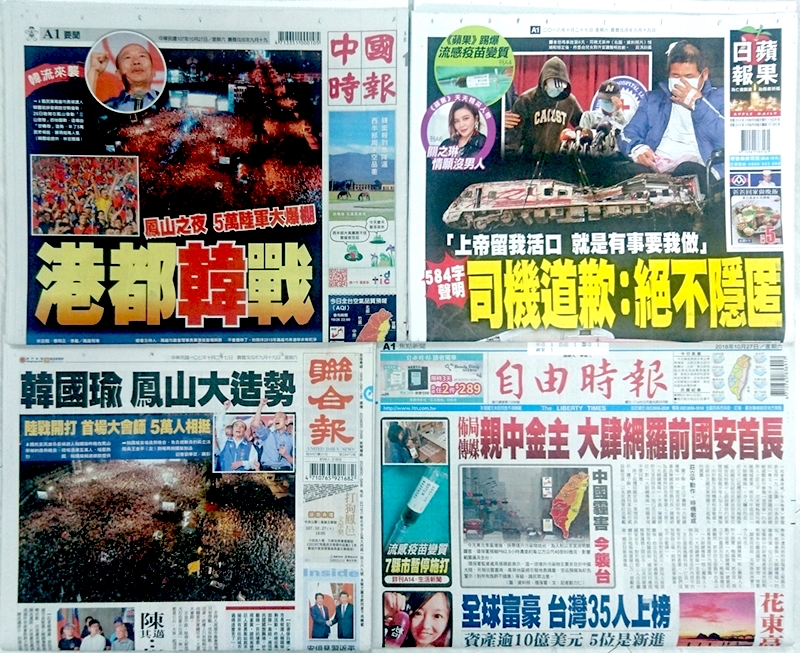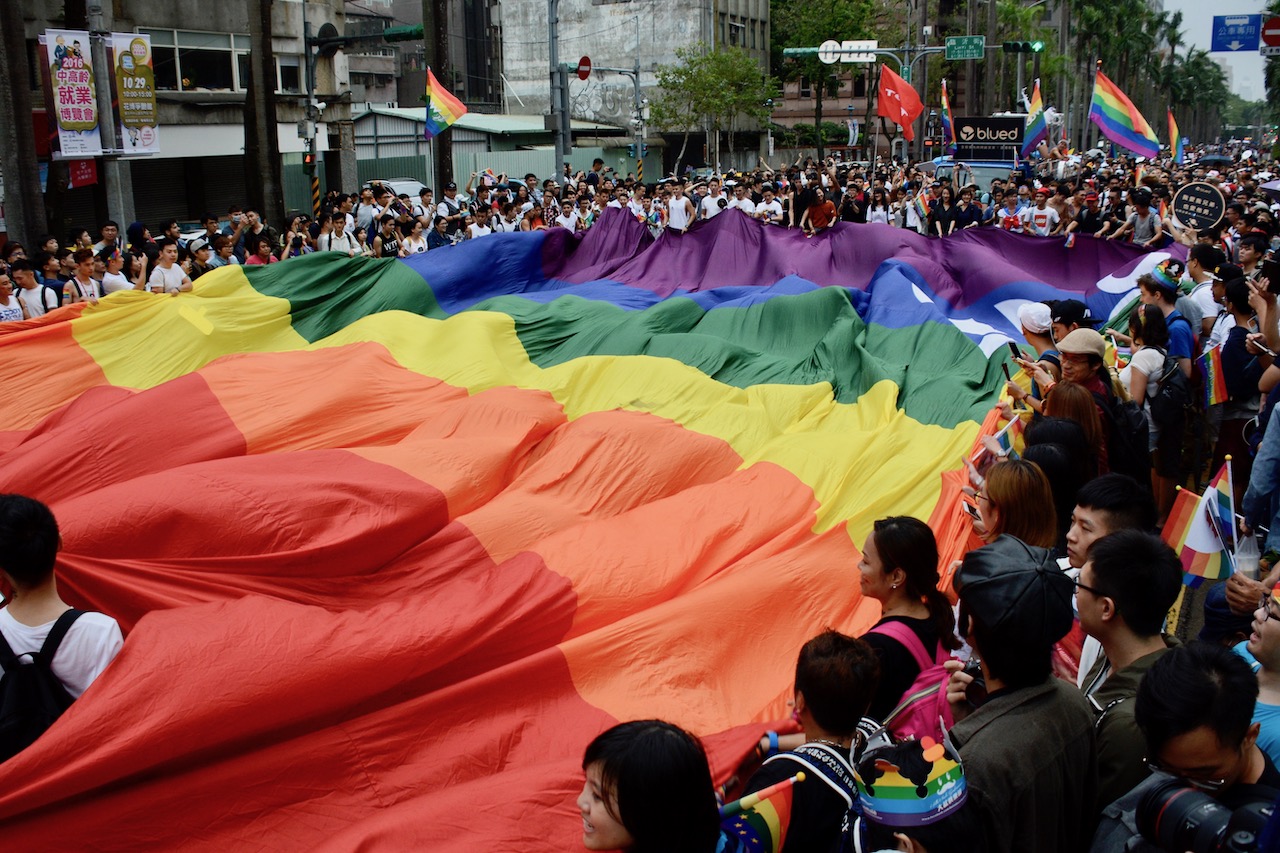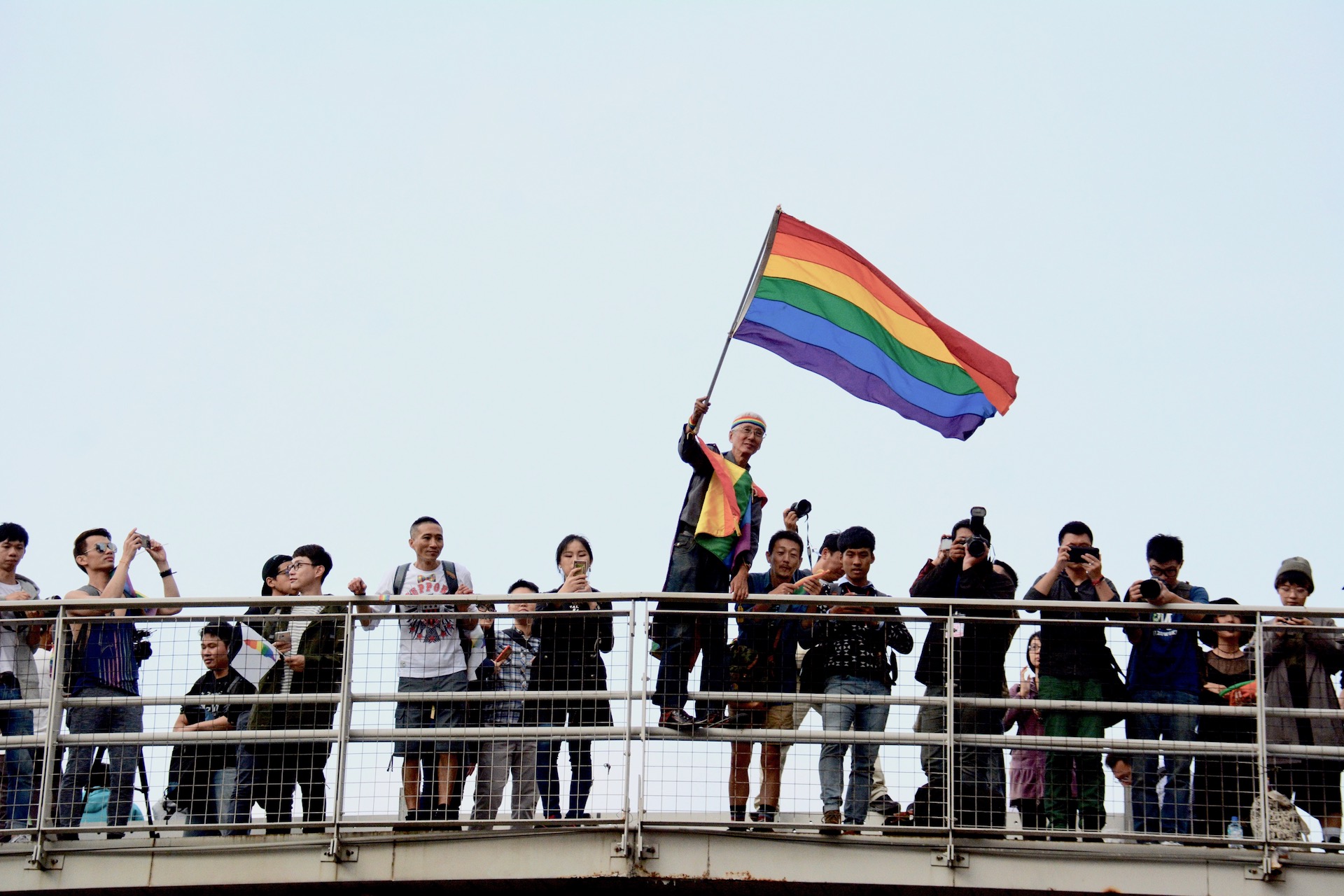A report by Greenpeace released today shows that Taiwan’s complacency in international human trafficking and rights abuses is probably much more serious than previous reports had suggested.
Taiwan has come under scrutiny in recent years amid reports that a severe lack of oversight and systemic inertia have allowed its fishing industry to perpetuate egregious abuses of its migrant fishing labor. NGOs have been working to uncover violations that include international human trafficking, forced labor, physical violence, and murder. A Greenpeace report released today is the latest in a recent deluge of information coming from NGOs as the world begins to turn its eyes toward Taiwan’s industry.
The report, titled “Misery at Sea,” provides detailed new evidence of human rights abuses aboard distant water fishing vessels and underscores structural problems within Taiwan’s political and law enforcement bodies. The report implicates Taiwan’s distant water fisheries as the perpetrators of the most serious abuses associated with the industry, highlighting cases that include unprosecuted murders, mutinies, and international trafficking ring fugitives living openly in Taiwan.
“Endemic human rights abuses and poor environmental standards exist in the [distant water fisheries] because the broken business model relies on unsustainable fishing capacity, and low-cost, low-standard operations that value volume and profit over quality and sustainability. This is driven by the relentless pressure of constant global demand for huge quantities of cheap seafood,” said a spokesperson from Greenpeace who provided information for Taiwan Sentinel.
“When this model of [industry] operations combines with Taiwan’s weak regulatory framework, and lack of political will to put pressure on its industry or to prosecute crimes at sea, the stage is set for the serious human rights abuses, dire labor conditions, and poor environmental standards that, as this investigation shows, continue to this day.”
Greenpeace has been operating in Taiwan since 2010, working with partner NGOs to push the government for greater resources and thorough enforcement of its labor and trafficking laws, which they believe are not being executed to the letter, and have too many gaps in them.

Greenpeace and partner NGOs participate in the Human Rights for Migrant Fishers rally in front of the Presidential Office Building in Taipei, coinciding with the second anniversary of President Tsai’s inauguration (Photo: James X. Morris).
Taiwan’s Legislative Yuan passed the Human Trafficking Prevention Act in 2009, which was intended to address many of the issues that are reported in the fishing industry. However, only a couple of years later the legislature voted that distant water fishing vessels were not under Taiwanese jurisdiction. In 2017, amendments to the Labor Standards Act were then passed to fill the gaps in the 2009 law, but lack of resources, education, and willingness on behalf of MPs who see no benefits from protecting non-constituents have frustrated many activists.
Migrant laborers are often hired by a network of brokers in their home countries who maintain quota contracts with Taiwan’s commercial fishing associations. Workers must pay fees to the brokers, including monthly service charges, for their placement on both inshore fishing vessels, those that operate close to Taiwan, and distant water fishing ships, larger boats, often tuna longliners, which operate for years at a time on the high-seas around the globe.
In Taiwan, systemic inertia has created confusion in government over whether this is an issue for the Ministry of Labor or Fisheries Agency to manage.
Taiwanese courts have sided with the fishing industry, arguing that complaints by exploited migrant workers are a matter of perspective, and that the relatively better pay and more technologically advanced ships are benefits, despite the reality of abuse.
Conditions aboard deep-sea fishing vessels are dire. Many Taiwanese-owed deep-sea vessels are longline tuna boats, dragging kilometer-long lines studded with thousands of hooks through the oceans. Above deck, migrant workers mend the lines and replace the hooks. Below deck, these ships are as much floating food processing factories as they are fishing boats, with crews working in cramped conditions cleaning and gutting the catch. In rough seas, the work becomes dangerous.
On inshore vessels the abuse ranges from wage exploitation, to verbal abuse, to physical beatings. On distant water vessels, where stress is greater and oversight is nonexistent, physical violence, unnatural deaths, and disappearances are common. It is difficult for NGOs to gauge how often these problems occur on distant water vessels, as much of the reports are whispers that make it back to port.
NGOs have found that Taiwan’s government has been complacent across the entire spectrum of abuses, even in recent years.
Greenpeace investigators have found that five convicted human traffickers affiliated with the Giant Ocean trafficking ring are living openly in Taiwan with the full knowledge and consent of Taiwanese authorities despite their status as fugitives.
On inshore vessels the abuse ranges from wage exploitation, to verbal abuse, to physical beatings. On distant water vessels, where stress is greater and oversight is nonexistent, physical violence, unnatural deaths, and disappearances are common.
The traffickers are associated with Giant Ocean International Fishery and Co. Ltd., a Taiwanese-owned recruitment company that ran afoul of Cambodian authorities in 2013. Among charges, it falsely claimed to provide jobs to fishermen in Japan. However, Cambodian officials estimate it sent more than 1,000 migrant workers to work in slave-like conditions on ships in African waters. Their repatriation has been difficult, and not all of the workers have been accounted for.
Greenpeace investigators also uncovered new evidence relating to the death of an Indonesian fisherman named Supriyanto. Newly revealed photographs and videos indicate that Supriyanto had died within four months of starting work on the Taiwanese vessel Fu Tsz Chiun. Satellite imagery indicates that as his condition deteriorated, and at the time of his death, the ship continued on its usual fishing course. Taiwan’s Fisheries Agency has stated that Supriyanto died due to illness; however, the images suggest that Supriyanto was beaten aboard the ship.
In its report, Greenpeace alleges the death was not properly investigated by Taiwanese authorities. The issue has not been prosecuted.
The report also highlights a 2016 incident aboard the Taiwanese-owned vessel Tunago No. 61, flying the Vanuatu flag of convenience, a way for Taiwanese owners to skirt domestic laws, in which six crew members mutinied and murdered their captain as a result of the dire working conditions they were made to endure. Investigators for Greenpeace conducted prison-based interviews with the crewmembers about the events leading up to the incident. Shocking details allege the crew frequently endured 20-hour workdays for weeks at a time, sleep deprivation, repeated verbal and physical abuse, discrimination, lack of sustainence, and were constantly under the sense of an everpresent danger to their lives aboard the ship.
Greenpeace and its partner NGOs in Taiwan, including the Environmental Justice Foundation, the Yilan Migrant Fishermen’s Union, which operates as the only union for migrant fishing labor in all of Taiwan, Serve The People Association, the Presbyterian Church of Taiwan Seamen and Fishermen’s Service Center, the Taiwan International Workers’ Association, and the Taiwan Association for Human Rights have continued to accuse the government of not following the 2017 law to the letter, complaining that it is empty and languishes unimplemented because the government is still giving preferential treatment to the fishing industry.
In early 2018 these NGOs established Human Rights for Migrant Fishers, a coalition for greater awareness of migrant fishermen’s abuse in Taiwan. They held their first rally and press conference earlier this month in Taipei, with the use of Greenpeace’s facilities, coinciding with the second anniversary of President Tsai Ing-wen’s inauguration. President Tsai has pushed for greater interaction and trade with Taiwan’s neighbors in Southeast Asia, known as the “New Southbound Policy.”

Greenpeace hosts the NGO coalition Human Rights for Migrant Fishers at their Taipei office, May 2017 (Photo: James X. Morris).
The coalition began meeting in early 2018 to push for greater enforcement of the 2017 Standard Labor Act, which they feel is not being executed in full, allowing abuses such as the ones in the Greenpeace report to continue.
At the rally, the NGOs stated that Southeast Asian countries provide Taiwan with the majority of its cheap migrant laborers who are being severely exploited, abused, and killed by Taiwan’s fishing industry. Their bottom line: fix the abuses, or the policy will fail.
The coalition of NGOs pushes for Taiwan’s government to act in compliance with international standards, enforcement of the 2017 Labor Standards Act, an increase in governmental resources and education to combat the problems, proper channels for migrant workers to send their complaints, and greater work with the NGOs to reach these goals.
“Our NGO partners are far better placed to deal with these types of issues. For this reason, we regularly cooperate with human rights and labor NGO’s, refer cases to them, provide resources and information, and keep in close touch with them to work on issues together. We also, where appropriate, liaise with global and domestic law enforcement. Greenpeace works to ensure trading and fisheries companies have fair and sustainable policies. Exposing products with IUU [illegal, unreported and unregulated fishing] and labor abuse in their supply chains is a key part of that process” their spokesperson explained.
In 2015 Taiwan was issued a “yellow card” warning by the European Union for its insufficient efforts in combating IUU fishing. The EU is one of the globe’s strongest regulators of fishery industries, setting standards such as mandatory unique identification numbers for EU-registered vessels that are above those required by the UN.
Taiwan has the greatest number of distant water fishing vessels in the Pacific Ocean, where approximately 60 percent of the globe’s tuna is caught, according to Greenpeace.
“Naturally, Taiwan or its industry should have a responsibility to protect the ocean and people who work on its vessels. Human rights and labor abuse, and IUU fishing activities tend to go hand-in-hand, and often illegal fishing is underpinned by the use of exploited labor” a spokesperson from Greenpeace’s Taipei branch said.
“Naturally, Taiwan or its industry should have a responsibility to protect the ocean and people who work on its vessels. Human rights and labor abuse, and IUU fishing activities tend to go hand-in-hand, and often illegal fishing is underpinned by the use of exploited labor.”
Longlining, the primary activity of Taiwanese-owned distant water fishing vessels, is an industrial practice that is widespread throughout the global industry, which has contributed to a severe depletion of the globe’s over-exploited tuna stocks. The hooks on these vessels are indiscriminate, and frequently catch other animals, including sharks and sea turtles, which die as a result of trauma, and are thrown overboard.
These vessels are capable of remaining at sea for years thanks to resupply processes known as transshipments. Motherships running cargo and crewmembers are able to run between ports and deep-sea vessels, supplying cargo, fuel, and fresh manpower. International agencies designed to manage the exploitation of the seas have attempted to curtail illegal practices on the high seas, but their reach is limited, and many vessels find that it is easy to hide in plain sight in the vast expanses of the ocean.
“To even begin to try to eliminate these crimes requires the elimination of transhipment at sea and immediate stop to the use of flags of convenience by the Taiwanese fishing industry,” Greenpeace’s spokesperson said.
The Greenpeace report also reveals that many land-based actors in the industry, including traders and grocery suppliers, though distanced from accountability, need to reconsider their role in the supply chain and systemic exploitation of migrant laborers.
Greenpeace has found that Taiwanese company Fong Chun Formosa Fishery Company (FCF) has been involved in two of the three cases highlighted in the report. FCF is one of the globe’s Big Three traders, reaching markets in Japan, Korea, the Americas, and Europe.
“FCF’s involvement in these horrific cases reflects its neglect of corporate social responsibility,” Greenpeace said.
The NGO hopes that by implicating FCF in their report, they will force the company to make a statement and disavow the exploitation of migrant labor.
“Naturally, we would hope to push FCF to openly commit to their CSR and a more comprehensive policy about eliminating human right abuse in their supply chain.”
The Greenpeace report suggests that trafficking, forced labor, and exploitation of migrant workers in Taiwan’s distant water fisheries is not restricted to “fly-by-night” operators and reflects a much graver systemic problem. With this report more eyes may turn towards Taiwan, and as the NGOs hope, they will be accompanied by more pressure.
You might also like
More from Society & Culture
Media and Free Expression in Taiwan Are Under Attack: What Can be Done?
How can we avoid the imposition of a blanket silence which can only empower our enemies and damage our democracy? …
Taiwanese Views on Homosexuality Based on Proximity of Relationship, Study Shows
The legalization of same-sex marriage in Taiwan should be viewed not just as a culmination of years of advocacy efforts …
Challenges Remain Following the Legalization of Same Sex Marriage in Taiwan
Despite the adoption of a new law on May 17, campaigns will continue to legitimize the kind of homophobic discourse …









